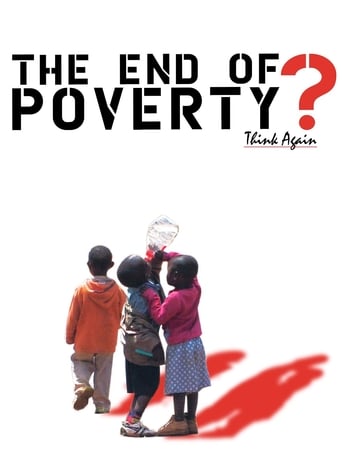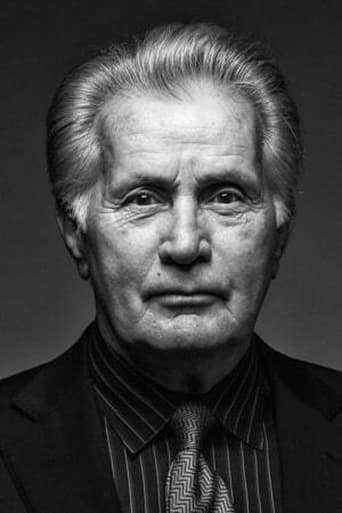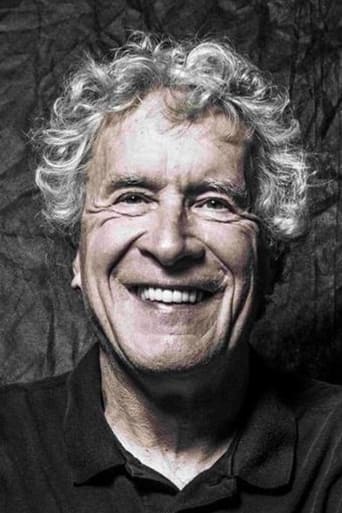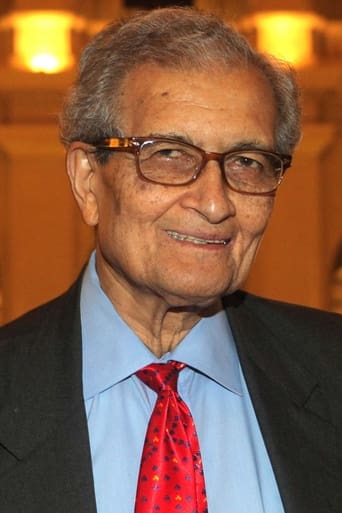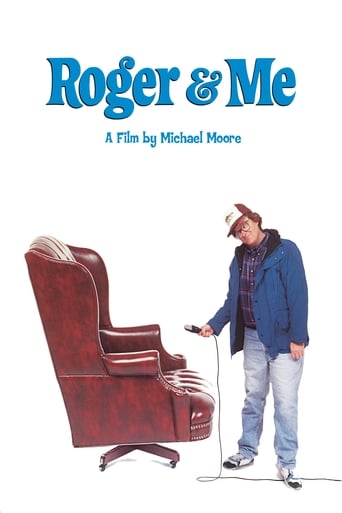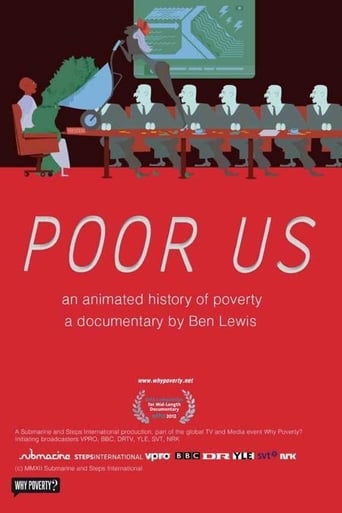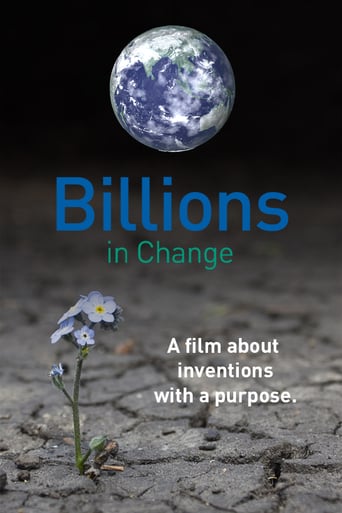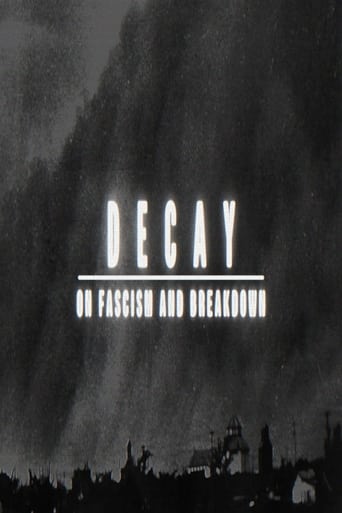The End of Poverty? (2008)
The End of Poverty? asks if the true causes of poverty today stem from a deliberate orchestration since colonial times which has evolved into our modern system whereby wealthy nations exploit the poor. People living and fighting against poverty answer condemning colonialism and its consequences; land grab, exploitation of natural resources, debt, free markets, demand for corporate profits and the evolution of an economic system in in which 25% of the world's population consumes 85% of its wealth. Featuring Nobel Prize winner Amartya Sen and Joseph Stiglitz, authors/activist Susan George, Eric Toussaint, Bolivian Vice President Alvaro Garcia Linera and more.
Watch Trailer
Cast
Similar titles
Reviews
Overrated and overhyped
hyped garbage
Fresh and Exciting
Best movie ever!
I am not able to re-recite the economic views expressed in this film, and although a lot of things have changed globally since 2008, many of the corrupted activities cited in this film are still occurring. It both saddens me and enlivens me to be aware of the poverty cycle in our world because at some point, it seems hopeless and yet curiously easy to fix. I would love to continue sharing this great film because it's documentation is so important in educating people and maybe enough to motivate positive change in our lifetimes. Thank you for shedding some light with this film! Here's to a brighter tomorrow.
"In a world with so much wealth, in modern cities, and so many resources, how can we still have so much poverty where so many people must live on less than one dollar per day?"Poverty is an issue that is currently affecting billions of families and individuals. I came from a third world country where poverty is extremely common. I grew up witnessing neighbors struggling and parents losing their jobs and not being able to make enough money in order for their family to live with dignity. Mothers were forced to stay home and take care of the house, while fathers were the breadwinners of the family. In the documentary "The end of Poverty" the director, Phillipe Diaz, discusses poverty as an issue that is pervasive all across the globe. In his documentary, he focuses on the slums of Africa and the barrios of South America to elucidate poverty to the world. We are reminded that families are facing destitution and due to this children are forced to neglect school because they must help their families and cannot afford an education. Poverty has been affecting the world for over five hundred years. Conquistadores and colonizers roamed South America, Asia, and Africa, robbing lower class families of their land. For example, at the end of the colonial era in Kenya, one percent of the white population owned about fifty percent of the arable land. The conquistadors and colonizers imposed severe taxes on huts and forced lower class people into harsh labor. This can be closely connected to slavery. In today's world, poverty is still a penetrating issue, as third world countries are still plagued by inequitable debts, trade, and tax policies. Rich countries take advantage of third world countries, by ensuring and benefiting off of their underdevelopment. Landowners are still in possession of land that does not belong to them but in reality to the poor people. The poor continue to be perpetually oppressed throughout the world. Individuals are still forced to work in inhumane conditions, being treated immorally, and are not receiving appropriate salaries. It is estimated that 60 to 80 million people still continue to work in dystopia societies, as they are living in slave like worlds and depend heavily on the little money they earn to support their families. In Brazil, seventeen workers died from exhaustion and another 490 as a result of their slave-like employment, which entails sugar application. One of the workers explained the need to wake up at 1 am, in order to eat breakfast to begin working at 3:30 am. They spend hours cutting bundles and working insufferably hard to solely earn a paltry amount of 27.50 dollars per month. In less than four hours of making pizzas at work, I am able to make about the same amount of money, if not more, than these individuals who endure hard labor under the scorching sun. An article posted by CNN stated that forty percent of the food in the United States is thrown out, which is approximately 165 billion dollars squandered each year. Furthermore, about twelve percent of fresh fruit at supermarket goes to waste. It pains me to realize that so much food is discarded and wasted each year in this country, while people are dying of hunger every day and parents are risking their lives to put food on the table for their children. The documentary states that "less than 5% of the world population lives in United States, and we consume 25% of the world's resources, and creating 30% of the world pollution," which indicates that poverty is not about the lack of resources, but rather the distribution of resources.The documentary includes many experts such as, economists, authors, university professors, government ministers, Bolivia's vice president, and Brazilian activists. Phillipe Diaz succeeded in giving a voice to people affected by poverty and through allowing us, the viewers, to witness their daily struggles. I was extremely distressed when seeing individuals, wearing ripped clothes, discuss the grueling labor that they endure to earn less than a dollar and the starving children that yearn for an education. It is often the case that we forget our privilege and victimize our situations and ourselves. It is only when we watch documentaries, such as this one, do we understand the harsh reality that many individuals actually face. While watching this documentary, I experienced the very emotions that the director had intended for. In an interview with a kid from Kenya, he talked about having to give up on school because his parents could not afford to pay for the test to attend school. Mr. Diaz is implying that man created poverty; therefore man can end it, that it is the duty of the privileged to consider the struggles of the working poor and seek to alleviate them, by helping to create an egalitarian society.
Louis Proyect's objection to Barry Freed's scathing critique of this movie is that it mentions primitive accumulation, and that this is a Marxist theory. Fair enough. However, one of the problems with the film is that it never STOPS being about primitive accumulation. The filmmakers indulge themselves in a kind of 21st century, post-modern romantic nationalism, which blames, the words of one of them tonight where I saw the film, the "overconsumption" of the First World--every single member of the First World, even the starving children in Harlem and Bed Stuy and Appalachia?!--for the problem of poverty in the Third World.Freed is correct to argue that this doesn't give us much in the way of practical solutions, and nothing approaching the Marxist strategy of workers revolution in the advanced capitalist countries. Indeed one of the experts interviewed poo poos the very idea of communism, as Freed points out. It's just unthinkable, he says or implies.Freed's review however, is only half right--the first half. The second half indulges in the curious notion that once the workers take over, all the scarcities, the Limits to Growth, the finiteness of energy resources, and environmental problems we see today under capitalist industry will somehow magically disappear in a puff of (genie?) smoke, and that anyone who questions the rather questionable idea that technology under workers control will solve all our present problems with overuse of resources, global warming, and pollution--well such sceptics are nothing but "Malthusians." Somebody in the audience during the Q&A period expressed this point of view as well. Marxists really sell themselves short and come off like muddle headed ignoramuses when they talk like this. This isn't science--this is wishful thinking.
The rich started taking advantage of the poor since the 16th century, when is agreed that capitalism was born (I would like to know what brilliant economic system ruled before that). According to the director's view and people interviewed for this documentary, colonialism is responsible for the division between north and south that we see today, and that's when capitalism starts. All the fault falls upon Spain, Portugal, Holland and England (but wasn't the US a former British colony? What about Australia? Maybe they were lucky they did not have any gold).The message is correct: there is a huge gap between rich and poor. The system is a failure, as appropriately states John Perkins. But the director committed the mistake of showing less well-founded words from Amartya Sen and more of labor unionists and most-probably corrupt politicians of emerging countries, that use their speech to manipulate less-educated masses. There is much information with lack of basis in this doc. 1) Brazil does not have 50 million people starving but 13 million, as data from 2004. 2) India and China are not emerging economies because of communist protectionism (as mentions Cliff Cobb); on the contrary, they boomed only after they opened their markets. And 3) Germany is not the largest coffee exporter in the world. Those are things I knew, but because of that, I was skeptical about all the other information in the documentary.Talk about poverty. But use the right data.
